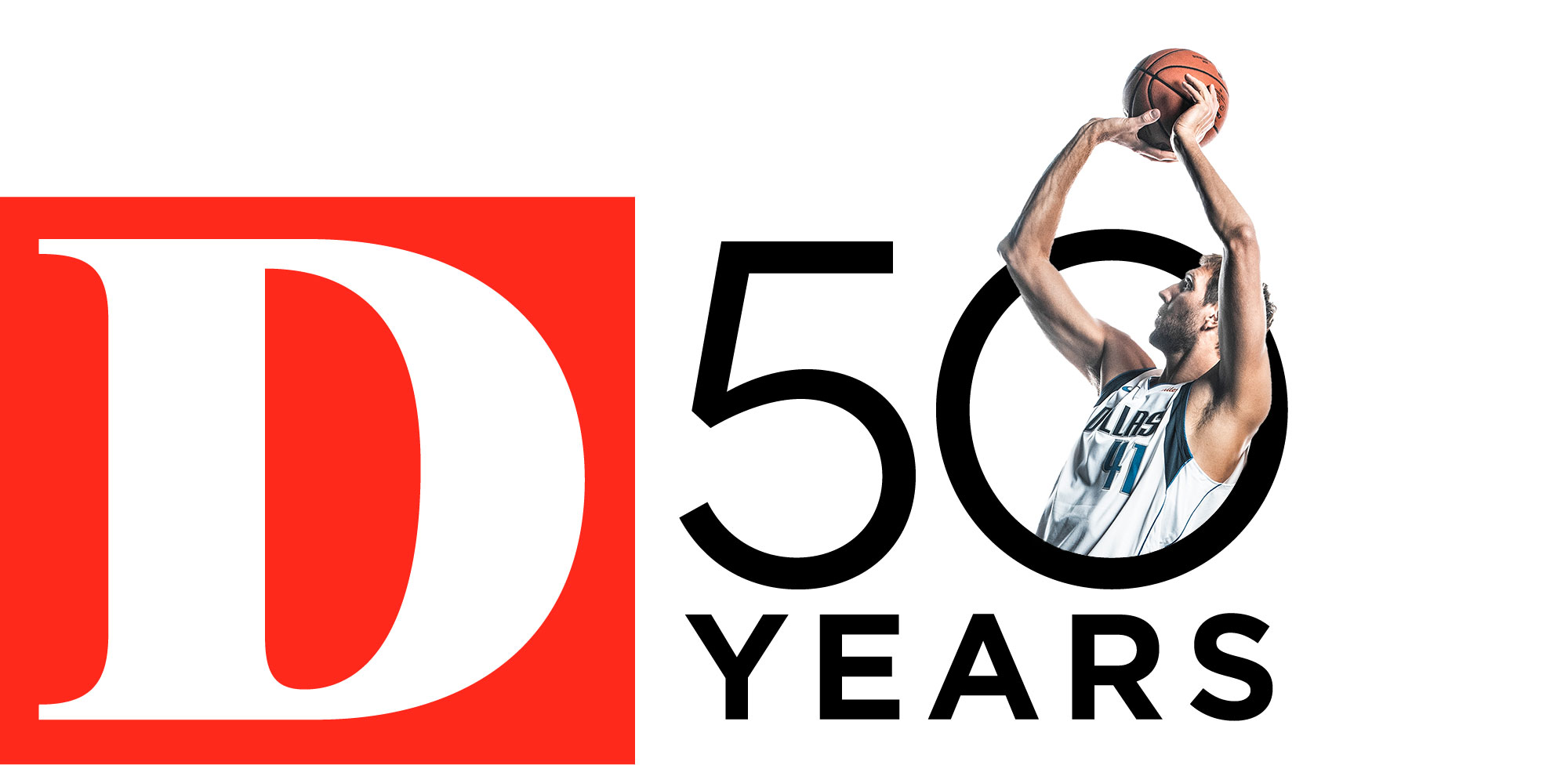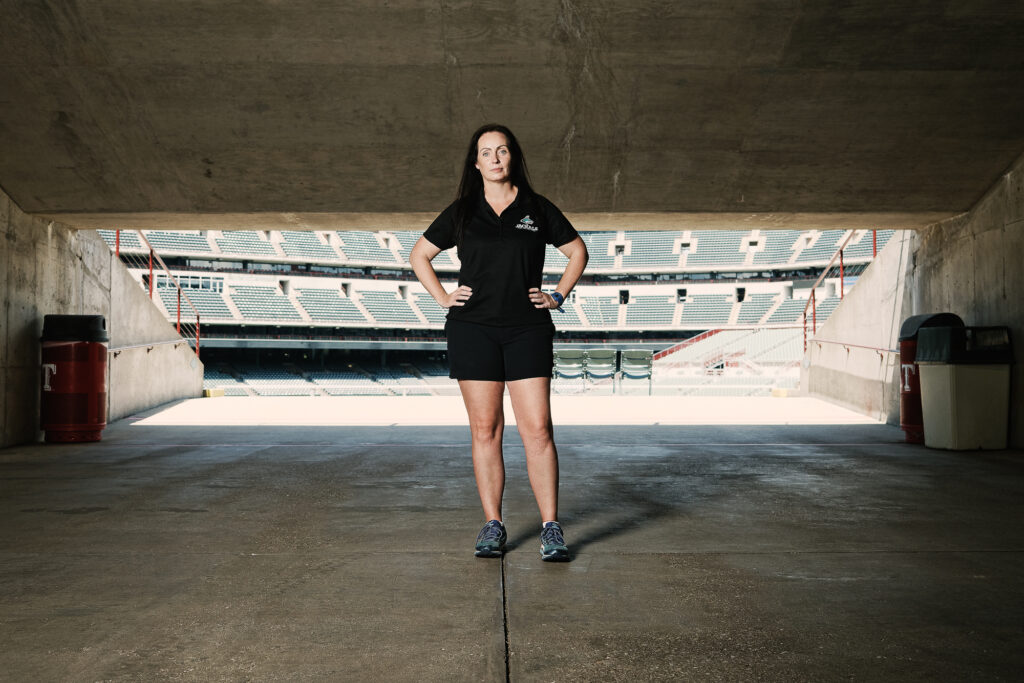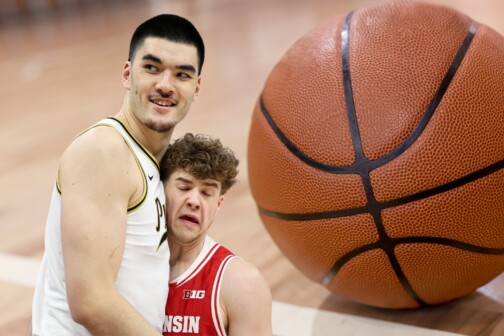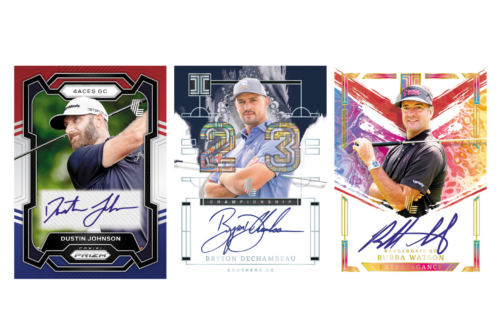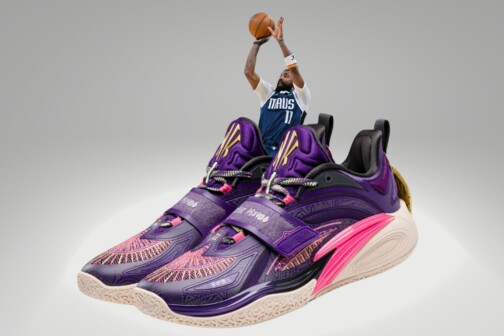Elaine Vassie doesn’t like being called a leader. Never mind that she’s the only one who’d argue against it. The 40-year-old is the general manager of the Dallas Jackals, North Texas’ new professional rugby team, and the only female general manager of a major men’s professional sports team in the region. She is the club’s architect, building the team’s foundation based on her blueprints.
The Jackals’ two main goals are to develop domestic talent and play entertaining rugby. Vassie believes the best way to do so is through empowerment and support. She wants a culture where everyone in the organization feels they are able to speak up and not be scared to contribute to discussions. She wants players to develop feel and instincts for the game, not memorize a dense playbook. Most of all, she wants to build a self-sustaining system so that if one person leaves, the entire structure doesn’t come crashing down like a poorly constructed Jenga tower.
That’s why she doesn’t like to be called a leader.
“It’s more about supporting people to lead themselves than it is someone leading them,” Vassie says.
The Jackals, who will play at Arlington’s Choctaw Stadium, open their inaugural season on the road tomorrow in Major League Rugby, North America’s top rugby union competition. There are 13 teams in the 5-year-old league, including clubs in Austin and Houston, with the season running into June. Like Major League Soccer, there is a mix of domestic talent and older international stars. It is still finding its footing in the United States, just as the Jackals will be searching for theirs, and so it would have been easier—safer—to take a traditional approach to team building. While Vassie has spent over 15 years in the game, her outlook is not the typical rugby way of doing things. The classic top-down approach of conforming to a set system and staying within that playing structure doesn’t make sense to her. She wants players to be adaptable on the field, supported off it, and unafraid to ask questions and give feedback. It’s the same with her staff. To her, rugby is the ultimate team game. The organization should operate the same way.
They’ve yet to play a match, but so far, the staff, players, and organization have bought into the vision and the club’s mission. “I’ve worked with some amazing, amazing coaches and some brilliant players,” says Jackals performance and recruitment analyst Darren Lewis. “There’s just a different energy about this project.”
And whether or not she’ll admit it, Vassie is a huge reason why.
“You don’t get the opportunity to work with great people like Elaine every day,” Lewis says.
Born in Scotland and raised in England, Vassie came from a family that wasn’t interested in the sport. She wasn’t, either. Vassie was 22 years old the first time she picked up a ball after a co-worker asked if she wanted to come and play.
“It’s funny when you look back at things and think what it leads to,” she says.
Her coaching career began in a similar way. A few years into her playing career, she was dropping off a friend for a practice with a club called Manchester Village Spartans when he asked if she could join them for training. They were short players that day. They were short on leadership, too. The team’s coach played for a club in Premiership Rugby, England’s top league, which limited his availability at practice. Vassie was a personal trainer at the time, and the team asked if she could lead some conditioning drills and other training exercises.
“I think she would fly over here and punch me in the face if she heard me call her a trailblazer.”
Darren Lewis
It was a fast-paced journey to go from rugby novice to coach, but Vassie says the two go hand in hand. She enjoyed playing but was frustrated by her lack of understanding. Coaching provided an opportunity to learn more and to help others grow and learn the values of rugby like she did as a player.
In 2009, around six years after she first picked up a ball, she got her break by being offered a job as an assistant with Manchester Rugby Club, one of the world’s oldest rugby clubs. But it had fallen on hard times and was playing in England’s third-highest league.
After only six games, the club’s head coach resigned because his young son had developed an illness. Vassie took over what the media described as “arguably the hardest job in rugby.”
“We were a team that was probably the better part of half a million pounds underfunded compared to other teams,” she says. “We weren’t going to go out and win games. Probably a lot of people would look at that and go, that’s career suicide. … But probably for me, it was the only opportunity I was going to get at that level.”
A team without money and a roster playing levels above where it belonged was never going to win—and Manchester Rugby Club didn’t. But Vassie says the team had good people throughout the organization. She developed close relationships with the players and listened to them. She relished the Tuesday and Thursday night post-practice dinners with the team. She challenged herself to create a positive environment for growth amidst a sea of defeats. And what ended up being the biggest risk of her career turned out to be the backbone of it.
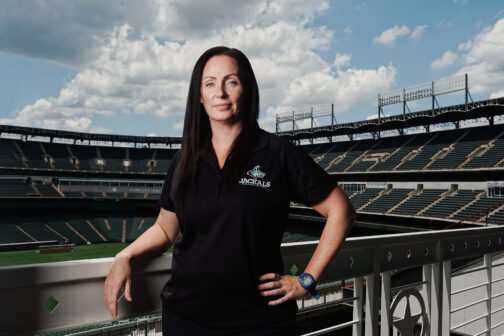
From there, she hopped around the world. She spent a few months as a consultant for a club in Italy in 2012. She worked as director of rugby for the Dallas Griffins for two years. She returned to the United Kingdom and helped out with Scotland’s national team operations. But Vassie and her husband never forgot their time in the Lone Star State, where Vassie was intrigued by rugby’s growing opportunities in the U.S. professional sports landscape and with the side bonus of better weather than the U.K., too. So when the chance arose in 2018 to serve as the director of rugby and men’s head coach of the Dallas Harlequins, the 50-plus-year-old historic local club, she jumped at the opportunity.
When the Jackals were founded, Vassie was hired as assistant general manager and an assistant coach. She was promoted to general manager last year. While she still helps out with coaching, Vassie says she likes building the infrastructure and working on both a macro and micro level for the organization. The promotion didn’t really change any of her roles within the club. “Her title is just now catching up with her responsibilities,” team president Scott Sonju said in a statement at the time.
Vassie, in keeping with her self-effacing nature, says she didn’t care about the title change as much as what it represented. The organization had bought in to what she was helping create.
When Vassie took over the head coaching role at Manchester, she became the first woman to lead a men’s rugby team in an English national league.
It was a remarkable achievement, but Vassie and the team were too in the weeds of the season to realize it. Until, she says, “We got on the bus to go to an away trip and all the lads started giving me a bit like ‘nice nails,’” Vassie says, remembering her confusion at that moment. “And they’re sitting there with a copy of Rugby World Magazine, and, for whatever reason, the journalist had put a line in there about my nails. They’d obviously seen this before I’d seen it being released. They were giving me a quiet jab about it, which was really funny.”
She believes those were the only moments when the group made much mention about her gender. “I think outside of that it was just, ‘Here’s where we’re at. Here’s what we’re looking to do. Let’s crack on doing it,’” she says.
Her trailblazing has continued in the States. In addition to being the only female general manager of a professional sports team in the area, she is also the first woman to hold a management position for a Major League Rugby club. But Vassie insists she doesn’t think much about it.
“I think she would fly over here and punch me in the face if she heard me call her a trailblazer,” says Lewis, who is working remotely in the United Kingdom. “And it’s not because she isn’t. It’s because she’ll never let herself admit it.”
Nevertheless, she understands the significance of her position. In an interview with the Times of London last year, Vassie said, “I need to get more comfortable with the role model label.” Already, her influence goes way beyond the club. Jackals director of community and media relations Kelsey Armand sees it on social media, where posts with Vassie get a tremendous amount of engagement.
“People love her,” Armand says. “It’s very clear that she’s impacted a lot of lives through her rugby career.”
It means something for other women and girls to see Vassie in a role like this one, and the best way she can pave the way for more is by continuing to do a good job. That’s what she focused on in England in 2009. It’s what she’s focusing on in Texas in 2022. It’s what she will continue to focus on.
Vassie is fascinated with how people operate. She enjoys reading psychology books that explain what goes into people’s thought processes and understanding. She loves occupying both coaching and management roles because she can provide ways to support the people around her and hopefully develop them into the best version of themselves.
It’s working. Armand says Vassie’s ability to push people while accepting the bumps that come with being an expansion team in this era—such as pandemic-induced postponements and visa issues—is a quality that is hard to find. Lewis says she has created a thought-provoking, competitive, and challenging environment that is also supportive of those in it. Both highlighted her communication skills—how she checks in with people about their personal lives, how she makes a point to talk with everyone in the organization, how she cultivates engaging discussions and conversations.
“People love her. It’s very clear that she’s impacted a lot of lives through her rugby career.”
Kelsey Armand
She is diligent in the office, working upwards of 14 hours a day with the pace and energy of someone facing the countdown to the start of a season. So much of how the club operates is constructed around her vision, and Vassie is particular. She knows what she wants the club to look like and how it runs, all the way down to the small details like saying “IQ sessions” instead of “meetings” because she doesn’t like the formal connotation of the word.
But she is never in too much of a rush to talk about topics beyond the scope of rugby.
“She’s pretty superb,” Tom Redfern says. “I think her caring and nurturing approach will always trump the other leadership styles that you might see out there.”
The current head coach of The Henley College in England, Redfern met Vassie when he was 18 years old at DAK Mantova in Italy. The two became friends and have stayed in touch over the past decade, calling each other for advice on coaching, leadership, and more.
He may not be on the staff for the Jackals—although he has watched film for Vassie—but Redfern knows the difference-maker she will be for an organization. He saw it firsthand a decade ago on a game-day Sunday. Snow was falling from the Italian sky and the pitch was frozen. It made no sense to play in such dangerous conditions. But only Vassie had the courage to approach the head coach and say so. It was an emotional conversation, Redfern recalls, heightened by the fact Vassie didn’t speak Italian well, and the head coach didn’t speak English well. In the end, Vassie won out.
That moment and how much she cared for her players has stayed with Redfern ever since. He remembers what he felt like that day. He wants the players he coaches to feel the same way he did. He wants to support them like she did.
He wants to lead like Vassie.
“When I sit in an interview and you get a question of ‘Give me someone that inspired you or someone that you look up to?’ I say Elaine Vassie,” Redfern says. “That’s pretty cool that I get the privilege of saying that.”
If the Jackals succeed, he’ll be the first to give her credit—even if Elaine Vassie doesn’t want it.
